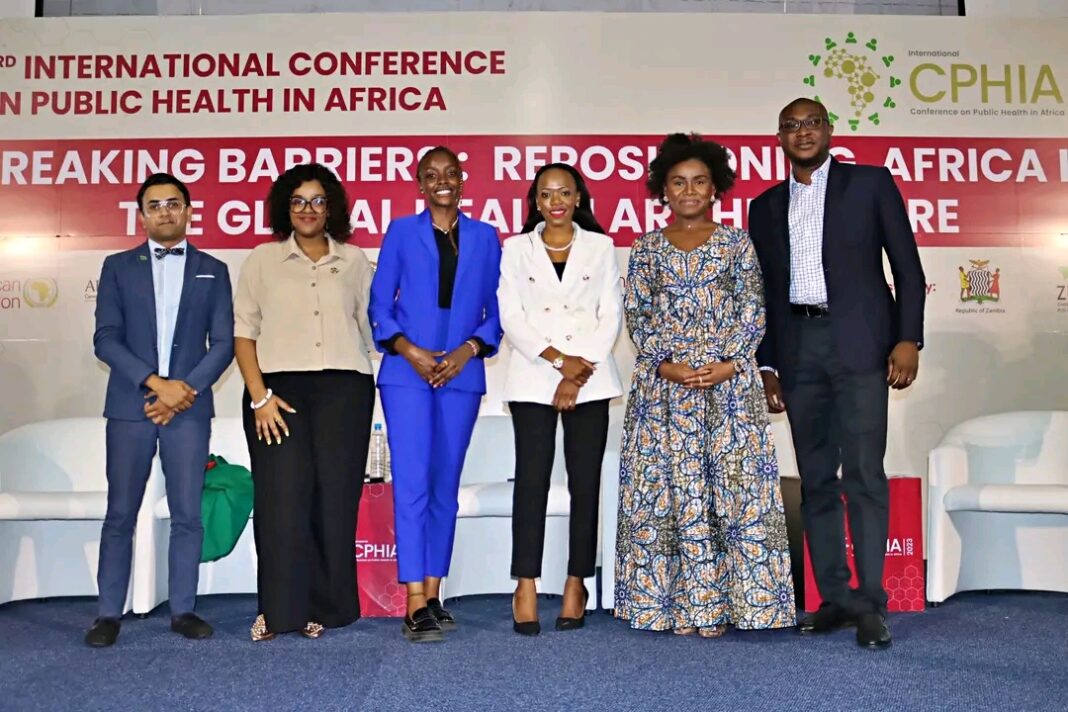Ntsoaki Motaung
As part of the 3rd International Conference on Public Health in Africa, held in Lusaka Zambia on November 27, the Heads of States with other delegates discussed access to adequate healthcare for young girls and women in Africa.
The topic was discussed during plenary track four under the theme “Women By Women: access to Adequate Healthcare for Young Girls and Women in Africa”.
This is where the Special Rapporteur on the Right to Health, United Nations (UN) Dr. Tlaleng Mofokeng called for African leaders and those in the positions of power to educate themselves, be wear of Eco-fascism as the Africa Continent move ahead with the climate crisis discussions, what solutions look like for the future and how those solutions will affect the access of healthcare for young girls and women in Africa.
Mofokeng said she remained concerned that many former colonized countries specifically African countries are still paring the legacy of European brutal colonial regimes through their restrictive laws.
“We see this in criminalizing same-sex marriage, same-sex interaction, criminalizing sex work, criminalizing drug use, and of course abortion laws,” she said.
She indicated that it is also ironic that these former European colonial regimes themselves in their own countries or their citizens have moved towards a human rights perspective agenda and yet formerly colonized African nations are still holding on and perpetuating colonialism.
“I have committed to perform my mandate as the UN Special Rapporteur and want to inspire all of you to use antiracist and anti-colonialism frameworks,” she said.
Mofokeng said she was convinced that substantive equality must be placed at the center of the efforts.
“This is in line with the peace security development and human rights agenda of the African Union (AU) and the African Commission on Human Rights and people’s rights an integral to ensuring access to adequate healthcare for women and girls.”
She said the theme, “Women By Women: access to adequate healthcare for young girls and women in Africa” demands reconceptualization of traditional gender roles, to unlock young girls’ potential to contribute firstly to themselves than just the future but their communities and their societies in general.
“Young girls and women need to be at the center of all processes of governance not just as a token of representation nippers but they must be given the authority and the power to effect the necessary change,” she said.
Meanwhile, Dr. Matshiliso Moeti the Regional Director for Africa, World Health Organisation (WHO) said women play a very critical role at all stages of life in ensuring the health of populations and more has to be done to make sure that they have access, they are in leadership and their health and wellbeing is protected.
Moeti said women represent 50 percent of the global population and contribute densely at all levels in the homes and hospitals.
Head of Family Health and Public Health Dr. Makhoase Ranyali in an interview with Newsday indicated that access to adequate healthcare for women and girls is an issue for many countries and Lesotho is not an exception.
She said it is important for African leaders to take a different approach to addressing the issue.
“It is true that we still want health services to be available for everyone, but we also have to consider women and girls, especially in the areas where they have been side-lined,” she said.
Ranyali indicated that the Ministry of Health Lesotho has already started the work in empowering women and girls to access healthcare adequately.
“We already have adolescent corners in some health facilities. We are working in collaboration with other ministries like education, social development, and gender to empower women and girls so that they can also realize their potential,” she said.
She said Lesotho was also not an exception when it comes to issues of climate change and how they block women and girls from accessing healthcare.
“That is seen when women have to go to clinics for maternal services where they sometimes struggle to get to the facilities because they cannot cross overflowing rivers. They are also hindered from taking their children to the health facilities due to the extreme weather conditions as a result of climate change effects,” she said.
Ranyali stressed the need for collaborative work between all the ministries with one doing its part to make it easy for the other one to do its work.




